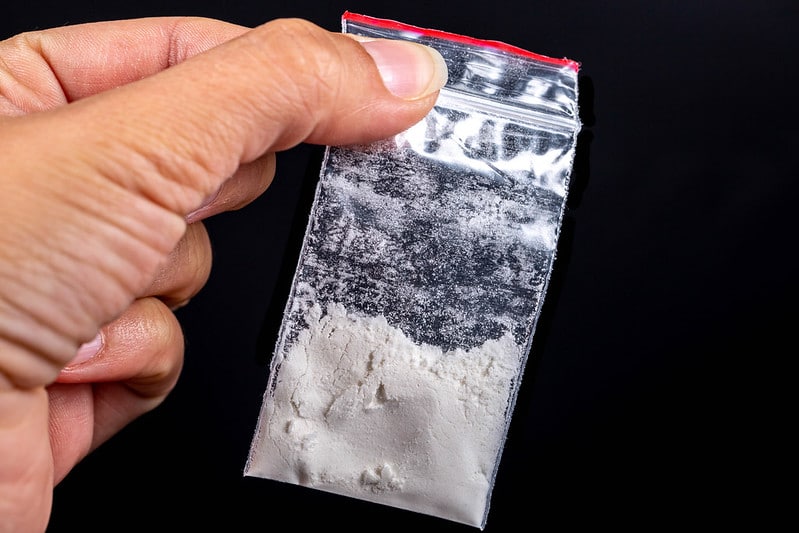On January 18, West Virginia legislators advanced a bill that would make “exposing” law enforcement officers to illicit fentanyl punishable by up to five years in prison. House Bill 2184 would create a misdemeanor charge for “unlawfully and intentionally” possessing fentanyl and exposing government representatives, health care workers, utility workers, first responders, corrections officers or police. If the exposure is deemed to cause “physical harm”—a contention based on persistent myths—it’s a felony charge.
The bill passed the House of Delegates Judiciary Committee by a 22-1 vote and will next appear before the full House.
For the misdemeanor, a person could face a fine of up to $500, or between one month and one year in jail, or both. For the felony, in cases where fentanyl exposure has purportedly caused harm, a person could be fined up to $2,000, or sent to prison for between two and five years, or both.
“Does it mean they’re in the same room? Does it mean they do a search and they find it?”
One question concerns whether the law would actually be enforceable. It’s unclear how someone might be shown to “intentionally” possess illicit fentanyl, which is often present as an adulterant in supplies of other drugs without purchasers’ awareness or consent.
“I don’t know how anyone could be convicted of it because it’s just so broad,” Delegate Mike Pushkin (D), the sole committee member to vote against the bill, told Filter. “In a lot of cases, people think they’re buying one substance and they wind up getting fentanyl. So how can you prove they intentionally were in possession of fentanyl?”
Neither is it clear how the bill would determine “exposure” to fentanyl. “Does it mean they’re in the same room?” Pushkin asked. “Does it mean they do a search and they find it?”
Delegate Larry Pack, one of the bill’s cosponsors, told MetroNews that his intention is to “protect the first responders [from] illness and even death.” But Pack is determined to protect them from something that doesn’t exist.
“There’s no such thing as a passive touch fentanyl overdose.”
That’s because overdose from passive fentanyl exposure is a myth. The substance does not readily absorb through the skin, nor do its molecules linger in the air. But the false claim that simply touching or being in the vicinity of airborne fentanyl can cause overdose is one frequently circulated by law enforcement.
“There’s no such thing as a passive touch fentanyl overdose,” Massachusetts-based paramedic Stephen Murray told Filter. “It’s not possible. It’s been disproven multiple times by renowned toxicologists around the country … I’ve gotten fentanyl on my skin before, both while drawing it up to administer it or in the course of doing my job.”
The proposed legislation could cause harms beyond increasing criminalization. West Virginia has a “Good Samaritan” law, which means people who call 911 if they witness an overdose are provided limited immunity from certain criminal charges. But the new legislation could people from calling for help. It can also frighten people from even approaching someone who has overdosed, if they think they are in physical danger. That means potentially life-saving action will be delayed.
“It’s shocking, honestly, to see this in writing and see it’s making progress in any state legislature,” Murray said.
This isn’t the first time West Virginia lawmakers have tried to pass this bill—they first introduced it in 2021, when it passed in the House but died in the Senate. Pushkin predicts the same will happen this year.
“In the Senate we have a couple more attorneys who have actually practiced criminal law as prosecutors or public defenders,” he said, “and they understand what a mess this bill actually is and how unenforceable it is.”
Pushkin himself is in recovery from substance use disorder. West Virginia’s traumatic experience with rising SUD and overdoses—and lawmaker’s counterproductive responses—was what pushed him to first run for office, he said. The state has become a national epicenter of HIV spread through shared needles in injection drug use, but a law passed in 2021 puts severe restrictions on the syringe service programs that prevent such transmissions.
Photograph by Marco Verch Professional Photographer via Flickr/Creative Commons 2.0





Show Comments